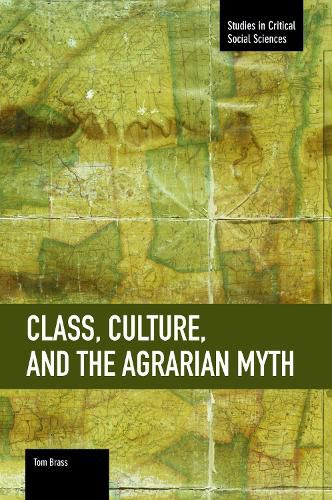Readings Newsletter
Become a Readings Member to make your shopping experience even easier.
Sign in or sign up for free!
You’re not far away from qualifying for FREE standard shipping within Australia
You’ve qualified for FREE standard shipping within Australia
The cart is loading…






Using examples from different historical contexts, this book examines the relationship between class, nationalism, modernity and the agrarian myth. Essentializing rural identity, traditional culture and quotidian resistance, both aristocratic/plebeian and pastoral/Darwinian forms of agrarian myth discourse inform struggles waged ‘from above’ and ‘from below’, surfacing in peasant movements, film and travel writing. Film depictions of royalty, landowner and colonizer as disempowered, ‘ordinary’ or well-disposed towards ‘those below’, whose interests they share, underwrite populism and nationalism. Although these ideologies replaced the cosmopolitanism of the Grand Tour, twentieth century travel literature continued to reflect a fear of vanishing rural ‘otherness’ abroad, combined with the arrival there of the mass tourist, the plebeian from home
$9.00 standard shipping within Australia
FREE standard shipping within Australia for orders over $100.00
Express & International shipping calculated at checkout
Using examples from different historical contexts, this book examines the relationship between class, nationalism, modernity and the agrarian myth. Essentializing rural identity, traditional culture and quotidian resistance, both aristocratic/plebeian and pastoral/Darwinian forms of agrarian myth discourse inform struggles waged ‘from above’ and ‘from below’, surfacing in peasant movements, film and travel writing. Film depictions of royalty, landowner and colonizer as disempowered, ‘ordinary’ or well-disposed towards ‘those below’, whose interests they share, underwrite populism and nationalism. Although these ideologies replaced the cosmopolitanism of the Grand Tour, twentieth century travel literature continued to reflect a fear of vanishing rural ‘otherness’ abroad, combined with the arrival there of the mass tourist, the plebeian from home